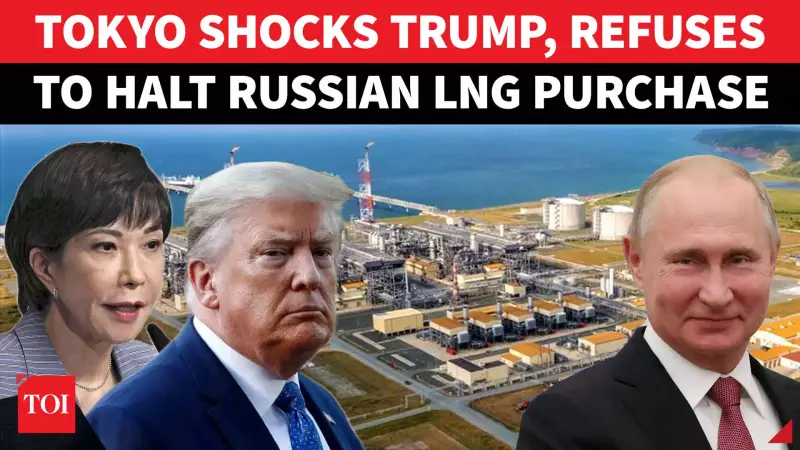
In a bold stance that highlights the complex dynamics of global energy politics, Japan has firmly communicated its inability to cease imports of Russian liquefied natural gas (LNG) despite mounting pressure from former US President Donald Trump and his administration.
Energy Security Trumps Political Pressure
Sanae Takaichi, the policy chief of Japan's ruling Liberal Democratic Party, made it unequivocally clear that the Asian economic powerhouse cannot simply turn off its Russian LNG taps. The declaration comes as a significant rebuttal to Trump's longstanding campaign to wean allies off Russian energy supplies.
"We cannot stop buying," Takaichi stated emphatically, underscoring the practical realities facing Japan's energy landscape. The country's heavy reliance on imported energy resources makes Russian LNG a crucial component of its energy mix.
The Contractual Conundrum
Japan's position is rooted in binding legal and commercial agreements that cannot be easily abandoned. The nation has substantial long-term contracts with Russian energy suppliers, particularly through projects like Sakhalin-2 in Russia's Far East, which have been supplying Japanese utilities and trading houses for years.
These contracts represent not just energy security but also significant Japanese investments in Russian energy infrastructure. Walking away from these agreements would entail substantial financial penalties and potentially damage Japan's reputation as a reliable business partner.
Strategic Balancing Act
Japan finds itself walking a diplomatic tightrope. As a key US ally in the Asia-Pacific region, Tokyo values its security partnership with Washington. However, the country's economic and energy needs create competing priorities that cannot be ignored.
The situation demonstrates the limitations of political pressure when confronted with hard economic realities and energy security requirements. Even for a close ally like Japan, some national interests remain non-negotiable.
Regional Energy Dynamics
Japan's stance reflects broader regional energy concerns. Following the Fukushima nuclear disaster in 2011, Japan became increasingly dependent on LNG imports to power its economy. Russian LNG, particularly from geographically proximate sources in the Russian Far East, offers logistical advantages that alternatives cannot easily match.
The country's position also signals to other Asian nations facing similar energy dilemmas that even under significant Western pressure, national energy security considerations may ultimately prevail in policy decisions.






